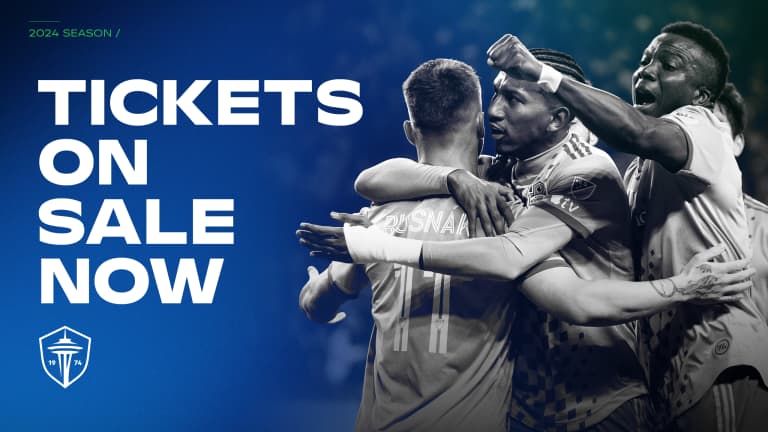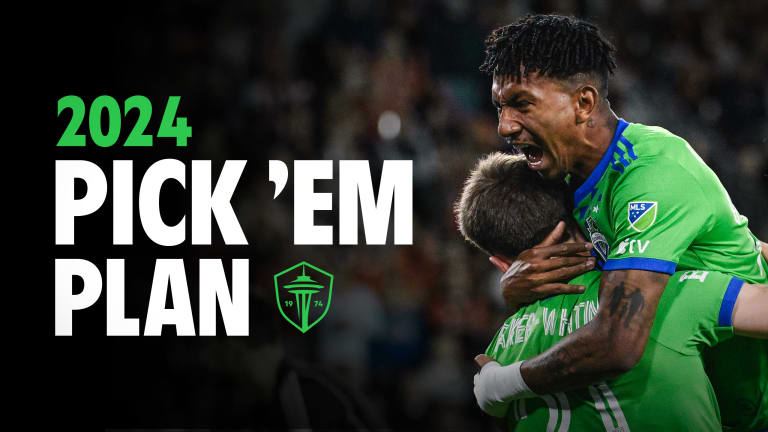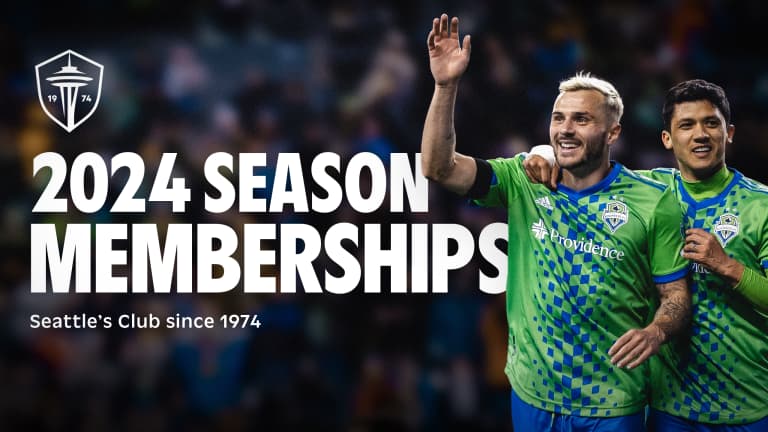It would be difficult for any member of the American soccer media to match the CV of Glenn Davis. He played both college and professionally, later becoming a youth coach.
It would be difficult for any member of the American soccer media to
match the CV of Glenn Davis. He played both college and professionally,
later becoming a youth coach. While that’s not unique, the manner in
which Davis has applied that experience certainly is. He helped start
the Houston Hurricanes youth club which spawned several MLS pros,
including current Sounder Josh Gardner. Davis is also a one-man
multimedia machine, writing a column for the Houston Chronicle, hosting
his own radio show and calling both play-by-play and color for matches
on HDNet, ESPN2, Fox Soccer Channel and, later this summer, the Olympic
Games on the NBC networks.
How has the Houston area changed as a soccer community since you’ve been there?
Well, the obvious thing is demographics. When I came here in 1984, so
much revolved around oil. Now it’s a city that certainly is diverse. We
have people from Central America, South America, Europe. We have
100,000-plus Nigerians, a strong Salvadoran community and a small
Turkish population. This is a city that encompasses every ethnic group.
Its location has obviously made a direct impact on the soccer community
on every level, whether it’s youth, adult or professional. It’s only
been scratched. There’s an incredibly high ceiling for Houston as a
soccer city.
When the first San Jose franchise relocated to Houston in
2006, outsiders might have considered it a gamble, yet the Dynamo have
quickly caught on. What were the key factors?
I never thought it was a gamble at all. The infrastructure and the
interest were here to embrace a team. Fortunately, we got gifted an
excellent team. With any franchise, it’s important how you start off,
that initial first impression. We played Colorado, it was pretty much
sold out, Brian Ching scored four goals and it was a great way to
start. Then of course, you win a couple championships. When you get a
team the caliber of San Jose, players that are willing to work in the
community, people in the front office willing to extend the olive
branch to people rather than being viewed as a threat–a lot of things
fall into place.
You played and you coached youth. How does that come into play with your media work?
I’ve been lucky getting opportunities. I took the ethic of being a
soccer player into the media. I took seriously how to be a better
journalist, a better broadcaster and a better radio host. Now I feel
very comfortable handling a variety of roles. Many people were willing
to help, be supportive and believe in me. I have confidence in myself
and a decent perspective from my experiences. I didn’t play in the
heyday of the professional game, but I did play against teams like UNAM
Pumas, Olympiakos and Sheffield United. I also played with a lot of
world-class players, guys who played in World Cups and captained
countries. All those experiences go together and hopefully add to your
insight. But it’s a process that never ends. There’s never a game on TV
that I don’t think I could’ve done differently. In the future I hope we
get more ex-players who really want to work at being a good
broadcaster. To relay it articulately, passionately, and in a way that
engages people watching is very important.
How did your work in TV begin and then blossom?
It began by calling indoor soccer as an analyst. I broke into
broadcasting in ‘94, doing indoor soccer. In fact, [in 1997] I called
the indoor championship series between Seattle and Houston. I enjoyed
it, sought out advice and slowly I got more and more games. Then I said
to myself it would be great for a player who played to branch out into
play-by-play. That’s pretty rare in sports. I would be able to lead my
partner in with relevant questions, and rather than a baseball or
football guy being real generic I could challenge my analyst
appropriately. In the late ‘90s I started doing play-by-play for Fox
Sports World, getting repetitions doing Serie A and CONCACAF Champions
Cup games. It laid a good foundation, gave me opportunity to grow, get
feedback and then you go from there.
How about radio and print?
My first work with
the Houston Chronicle was a preview of the 2002 World Cup. I’ve been
fortunate in that I really get to go after different topics. You get
tremendous feedback. I wrote an article on Spain and suddenly I get a
handful of emails from Spain. The gist of the article was how they won
the tournament, and how it was great for soccer. Not just winning it
but how they won it, by staying with their natural instincts. They
controlled the ball and by the end of the game the Germans looked like
a bunch of docile puppies. The life was literally sucked out of their
legs and their brains. They got the first goal and then siphoned the
life out of them. That’s something that should be a priority at youth
fields: ball possession. There are countless ways to put in little
hints. The weekly radio show started on public radio [for three years,
before moving to a commercial station]. I love the instant impact and
reaction from fans. I love people calling in who don’t agree, getting
that conversation going.
When you’re in the booth for TV, how do you see your role, be it color or calling the action? Do you model after anyone?
It’s a whole bunch of different people. You can learn from great people
in other sports, but I listened to great soccer commentators from
around the world. I love when American fans rave about the commentators
from Latin countries, saying how they’re so passionate. They’re right,
but those guys also have a romance language to work with. It rolls off
their tongues beautifully. Unfortunately, English is not the most
romantic of languages. For fans, it’s different things that connect for
them with a commentator. We all have to remember it’s really about the
teams and the product. I try to keep my emphasis on the product: the
teams, the coaches, the action, the tactical side. That what’s exciting
and will sell the sport. I don’t mind a little bit of anecdotal
information on the side. But ultimately it’s about the product, the
players and the environment that’s presented on television.
While there was praise for ESPN’s presentation of the Euro,
there was a recent online story that it was done so with a heavy
British accent when comparable American on-air talent was available.
Your take?
First and foremost, people wanted to see the
teams and the players. It’s up to the commentators to add to it. Soccer
knowledgeable people are important. You may have your favorite
commentators and they’re very important. I’ve done the last two World
Cups for ESPN, and of course you want to be part of that. It’s a
privilege. I think we have competent American commentators, but the
guys who worked the Euro for ESPN did a fine job. When you have the
European Championships, it’s more about not messing it up. Let [the
game] tell its own story. People weren’t turning on the final to listen
to the commentators. They wanted to see Spain and Germany play for a
title.
Calling a soccer game on radio is altogether different, is it?
In 2008, I did the U.S.-Mexico game at Reliant Stadium and I went down
to Saprissa [Costa Rica] and did radio for the Dynamo in the CONCACAF
Champions Cup. On radio, obviously you have to use words. You have to
imagine a father and son laying down in their living room with their
eyes closed, like I did as a kid, listening to sporting events. You
have to describe the picture vividly. Actually, in Saprissa, I hung a
microphone out the window of the booth. The crowd noise was so
deafening I couldn’t hear my producer back in Houston. So I decided I
was going to say something and then hang the mike out for 30 seconds as
the press box was shaking and I was praying. It rocked back and forth,
and I must have turned white, thinking I was going to be part of a
Central American stadium disaster. Even the local guy next to me was
nervous. So in radio it’s about being a wordsmith, trying to paint that
picture for someone. Close your eyes and imagine what’s going on.
You’re going to be calling the Olympic tournaments for both men and women on NBC. What are the angles you will be following?
You can be nationalistic. A lot of people were not born here in the
U.S., and they will be following their country of origin. For us born
in the United States, of course we all want to follow the U.S. men and
women in this event. There’s also the added intrigue of these famous
players added as overage players. It’s interesting to see the dynamic
of overage and the impact they have on their teams. What type of
leaders are these guys? The other cool thing is seeing emerging talent.
We all know how many famous players have gone to amazing careers, but
they came out or began playing in the Olympics. The general soccer fan
can watch it because it’s a great little glimpse into the future of
talent around the world. I’ll be working with Shep Messing and Lori
Walker. Every game will be live on some form of NBC programming. [NBC
is] taking it seriously and that’s great.
What is the top storyline you see emerging in MLS over the next couple years?
The No. 1 storyline, for me, is that this league is at a point that it
truly has to extend its salary cap. The players union agreement is
coming up. It’s time to give these teams more resources. It’s time for
us to stop being participants in international tournaments such as
Superliga and the CONCACAF Champions League. It’s time for the league
and everyone to come together to support these teams in a way that they
have a shot at winning these international competitions. These
tournaments represent an amazing opportunity to make gains in
credibility. When I hear Roman Abramovich has given $500 million to
Scolari to go out and get players, and the MLS salary cap is $2.13
million, I wonder if people realize what phenomenal jobs these guys are
doing with limited resources. So let’s expand some rosters, let’s throw
some money at the players and let’s start winning these competitions
instead of just participating in them. And we’ve been close. That’s a
great storyline.




